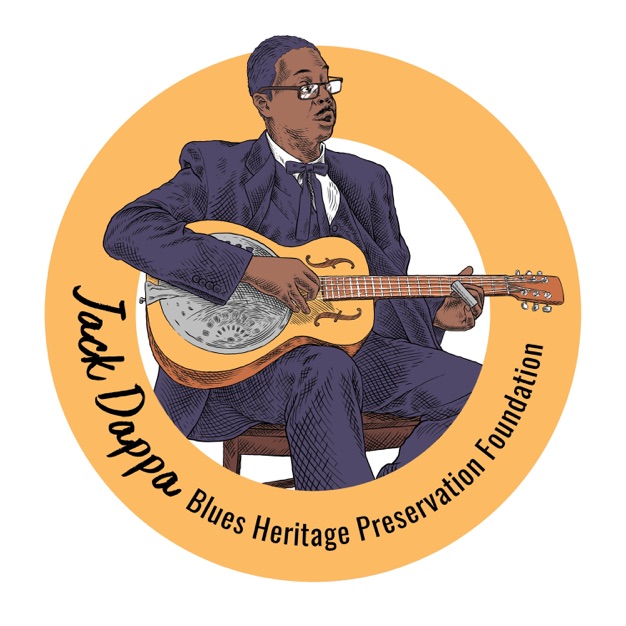
Jack Dappa Blues Podcast
Jack Dappa Blues
Jack Dappa Blues Heritage Preservation Foundation is a focal point for the research, archiving and raising awareness of African American Traditional Music and the Black Experience!!
- 54 minutes 10 secondsMisty Blues: A Live Tribute to Odetta
Misty Blues and lead singer Gina Coleman celebrate 25 years of composing and performing original blues. They will be celebrating this feat on a Blues Cruise this coming Friday. With that, after an encounter with Legendary singer and activist Odetta, Coleman and crew have been working towards a project that has now manifested as – I’m Too Old For Games: A Live Tribute To Odetta. In this episode, I will speak with Gina Coleman about the inspiration, thoughts, and efforts behind this significant folk-blues album!
For donations so we can continue producing content please click here:
17 July 2024, 12:27 pm - 1 hour 31 minutesThe Blues Society - Memphis Country Blues Festival
THE BLUES SOCIETY is a re-evaluation of the 1960s seen through the lens of the Memphis Country Blues Festival (1966-1969). It’s the story of Blues masters like Furry Lewis and Robert Wilkins, who had attained fame in the 1920s but were living in obscurity by the 1960s. It’s also the story of a group of white artists from the North and the South who created a celebration of African American music in a highly segregated city. THE BLUES SOCIETY follows the festival from its start in 1966 as an impromptu happening, through a period of cross-pollinization with New York’s East Village scene, and up to the 1969 Festival, which mushroomed into a 3-day event and garnered substantial print and television coverage including an appearance on Steve Allen’s national PBS show, Sounds of Summer.
Festival co-founder and legendary music Executive Nancy Jeffries says, “Everyone remembers the 60s as a party, but there was a seriousness of purpose to what we were doing.” Furry Lewis worked for decades sweeping the city streets, so the efforts to recognize his musical accomplishments echo the 1968 Sanitation Strike, where each worker’s sign proclaimed “I AM A MAN,” underlining theracist refusal to honor African Americans’ basic humanity. Reaching into the present, the film ends in a 2017 concert where Rev. John Wilkins returns to the stage he last shared with his father 48 years earlier. What is the legacy of the Memphis Country Blues Festival, and who do the blues belong to in 2020?
On this episode, I will speak to Filmmaker and Scholar Augusta Palmer, daughter of Robert Palmer, one of the founding members of the Memphis Country Blues Society, who, with her team, worked relentlessly to get this film to the public. Joining Augusta in this episode will be The American Songster Don Flemons, who is featured in the film.
14 July 2024, 12:23 am - 1 hour 14 minutesCultural Conservation - Cultural Conservation - The Attack on Blues Legacy and Land
In February of 2024, the Mississippi John Hurt Museum burned. The fire, believed to have been set intentionally, happened immediately after the Legendary Mississippi Blues Pioneer's cabin received landmark status. That was not the first or last attack on the Hurt Family museum, land, or legacy. A week later, the sheriff's office began investigating a break-in at the historic store located on County Road 41 in the Teoc community, where the Mississippi John Hurt marker was stolen.
The executor of the estate and granddaughter of Hurt, Mary Francis Wright, has been fighting for a long time the many racialized attacks on her family's land and legacy. Mary and Shannon Evans have been working to keep the integrity and safety of the location and family. In this episode, I will speak with Mary and Shannon about the fire and many other assaults they have endured.
7 July 2024, 4:02 pm - 1 hour 8 minutesJuneteenth and African American Folklore
As we celebrate JUNETEENTH, we must understand how Folklore and the Blues Narrative relate to this celebration. In this episode, I will discuss the celebration, what the celebration is actually about, and its connection to and significance of African American Folklore and traditional Black Music. Juneteenth should always be mentioned with “African American Traditional Music and Folklore!” Juneteenth is the celebration of the releasing of the last remaining slaves after the emancipation proclamation and civil war. In 1865, June 19 Union soldiers led by Major General Gordon Granger shared the news that the war is over and the slaves were now free, in Galveston, Texas. Ironically, this freedom came after the actual date of 1863, when Lincoln made his declaration. Though, the first documented celebration of emancipation dates back to March 2, 1807, when Congress passed a bill to halt the importation of “slaves” into the United States, effective January 1, 1808, which prompted Absalom Jones, a pastor at St. Thomas’s African Episcopal Church in Philadelphia to call for a special commemoration of the ban. “Let January 1, the day of the abolition of the slave trade in our country, be set apart every year, as a day of public thanksgiving for that mercy,” he declared. The 1808 ban fueled annual public observances, primarily religious gatherings in northern cities such as New York, Boston, and Philadelphia, called Emancipation Day. Though the initial celebration of January 1, 1808, was the first recording of Emancipation Day, June 19 then took on the name Emancipation Day, as well as Jubilee Day, now known as Juneteenth. In 1866, during the first celebration of “Jubilee Day” aka Juneteenth, newly freed African Americans sang Black Spirituals such as “Go Down Moses,” and “Many Thousands Gone.” In resemblance to Independence Day, they released a barrage of fireworks. The fact is, Texas was the last to free the slaves... Read More Here:
Get Merch here:
20 June 2024, 2:12 am - 1 hour 13 minutesSmithsonian Folkways releases The Complete Friends of Old-Time Music Concert
Black Spirituals, Field Hollers, and Slave Seculars celebrate Black American Traditional Music and Experience. This show is dedicated to sharing and raising awareness of folklife, songs, dance, scripture, lyrics, and everything related to black Spirituals, Field Hollers, and Slave secular expressions, as well as the coded songs of Black Spirituals that were maps and landmarks for escaping bondage. June 5th, I will be speaking with Eric Crawford, Associate Professor of Musicology, and Peter K. Siegal, Producer and American roots music archivist, about the June 14, 2024, Smithsonian Folkways release “The Complete Friends of Old-Time Music Concert” by Bessie Jones, John Davis & The Georgia Sea Island Singers with Mississippi Fred McDowell and Ed Young. The album is a live recording of a 1965 concert that captured the intersection of Black folk traditions and civil rights activism, produced and hosted by Folklorist Alan Lomax and recorded by Peter K. Siegal. The Liner notes, and essay are written by Eric Crawford, whose research focuses on the rich tradition of Gullah music. Crawford has also written books titled Gullah Spirituals: The Sound of Freedom and Protest in the South Carolina Sea Islands (2021) and Gullah Culture in America (March 2023). Together with Smithsonian Folkways, they have collaborated on presenting a significant album that conserves black expression while introducing these outstanding performances to new audiences.
5 June 2024, 10:00 pm - 50 minutes 21 secondsThe Lady and the Empress! Lady D's One Woman Bessie Tribute Show
On this episode of Jack Dappa Blues, enjoy the collaboration of Jack Dappa Blues Radio and Southern Ohio Folklife for a conversation w/ Lady D (West Virginia’s First Lady of Soul) to talk about her recent performance of The Lady and the Empress, a one-woman show about the life and music of Bessie Smith, the Empress of the Blues. Learn about Bessie Smith, her role in Blues music, her lasting impact, and why Lady D was drawn to her life story.
On the day of the interview, Lady D later performed at the Southern Ohio Museum of The Lady and the Empress!
This project is made possible by Mid Atlantic Arts’ Central Appalachia Living Traditions program. Project collaborators include the 14th Street Community Center, Time Out for Me Inc., Portsmouth Unity Project, Southern Ohio Museum and Cultural Center, The African American Folklorist, and Jack Dappa Blues Heritage Preservation Foundation.
#wethebluespeople #appalachia #centralappalachia #ohio #appalachianohio #westvirginia #bessiesmith #blues #folklore #folklife #livingtraditions #southernohiofolklife #hiphoptraditions
Facebook: @MidAtlanticArts @CentralAppalachiaLivingTraditions @southern.ohio.museum @jackdappabluesradio @TheAfricanAmericanFolklorist @ladyandtheempress @fourteenthst @TimeOutForMeInc @dafields
Instagram: @fieldsdoris @MidAtlanticArts @centralapplivingtrad @jackdappabluesradio @africanamericanfolklorist @southern.ohio.musum
24 March 2024, 1:28 pm - 55 minutes 27 secondsWhy Is It Always About Race? - “Country, Country Blues, and Blackness”
For some reason, when it comes to Country Music, most people do not associate it with black folk or folk musical expression. The thing is, country music, in its many forms, comes directly from black expression. i.e., the blues, country blues, and more.
To give the context to the roots of commodified music presented and thought of as white music… We can use Leslie Riddle as an example… he was the teacher to the Carters for the music they would be credited for. Maybelle Carter always let that be known.
In this episode, I discuss Why it is Always about Race regarding Country music, Country Blues, and Blackness.
Coffle Gang and Domestic Slavery
19 February 2024, 12:50 am - 1 hour 24 minutesCandice Ivory - Queen of Avant Soul Sangs The Blues
Today, I speak with Candice Ivory about her new project, When The Levee Breaks. As said on her website After releasing three acclaimed albums of jazz-driven original songs, vocalist Candice Ivory reveals a whole new sound on When the Levee Breaks: The Music of Memphis Minnie. Raised in Memphis and based in St. Louis, Ivory hails from an illustrious musical family that shaped Memphis’s secular and sacred sounds. Her great-uncle was the singer and guitarist Will Roy Sanders of the Fieldstones, one of the premier Memphis blues bands from the 1970s to the 1990s. Ivory grew up in the church, and by the age of eleven, she was singing in a choir that featured the soon-to-be-famous R&B artist D’Angelo. When the Levee Breaks brings together all of her formative musical experiences in a tribute to Memphis Minnie (1897-1973), whose powerhouse vocals and compositional creativity served as inspiration for Ivory’s own innovations as the Queen of Avant Soul. Produced by singular guitarist-bassist Charlie Hunter, a onetime D’Angelo collaborator, Ivory’s When the Levee Breaks is a midnight run to the crossroads, where jazz, blues, gospel, and R&B all converge.
https://candiceivory.com/
19 December 2023, 7:10 pm - 1 hour 23 minutesBlack Scholarship and Black Culture
Many Black Academic Scholars are also active practitioners in our respective cultures and traditions. That doesn't negate their ability to teach, mentor, or share skills and tricks of the trade with the folk. It actually makes them even more qualified. Some feel Black Scholars who are educated or formally trained cannot teach or pass on the folk tradition. I see it differently, and here's why.
NAMA HARLEM (New Amsterdam Musical Association)
18 December 2023, 6:13 am - 49 minutes 20 secondsYou Have A Home
On this episode, I'm encouraging all folks invested in the story of Black American tradition, folklore, folklife, material art, street art, religious belief, spiritual belief, Advocacy, Organization work, Public Programming, and everything that has to do with the "so-called" African American Narrative to submit work to the African American Folklorist Magazine and website. We no longer need to rely on any other platform to share, publish, or even interrogate our narratives. After a long-time supporter contacted me and shared how we are significant in disseminating and distributing the Blues People story, I felt it necessary to put the call out!
Jack Dappa Blues Heritage Preservation Foundation is a focal point for researching, archiving, and raising awareness of African American Traditional Music, folklore, folklife, public programs, and the Black Experience!!
The African American Folklorist Magazine gives a voice to those writing and working in and on Black American Folklore through the lens of Black Folk. From the nonprofit to the Magazine, this is the space for the story of everything African Americans.
https://jackdappabluesradio.tv/
https://theafricanamericanfolklorist.com/
24 October 2023, 5:37 pm - 57 minutes 16 secondsShirley Moody-Turner African American Folklorist of The Month
On this episode, I speak with Shirley Moody-Turner, an associate professor of English and African American Studies and founding co-director with Gabrielle Foreman of the Center for Black Digital Research/#DigBlk. She is an Author and award-winning educator that says, “As a young girl growing up in Buffalo, NY, I felt a deep longing to learn more about my family history.
Shirley has worked to unearth those stories and many others. She has authored, edited, and written many books, essays, and journals depicting the African American story through a folkloric and ethnographic lens. She is highlighting and honoring the Black men and women scholars like her who have significantly contributed to the Blues and Black narrative of the Americas.
Her website also states, “Honoring the legacy of the intellectuals and activists I study, I also work in partnerships to carry these histories out into communities beyond the university. Through the Center for Black Digital Research/#DigBlk and the Black Women’s Organizing Archive, I work with extraordinary individuals to help public and scholarly audiences forge meaningful collaborations with the shared mission of bringing the buried and scattered histories of early Black organizing to digital life. “
18 August 2023, 12:55 am - More Episodes? Get the App
Your feedback is valuable to us. Should you encounter any bugs, glitches, lack of functionality or other problems, please email us on [email protected] or join Moon.FM Telegram Group where you can talk directly to the dev team who are happy to answer any queries.
 Your Best Life Ever
Your Best Life Ever
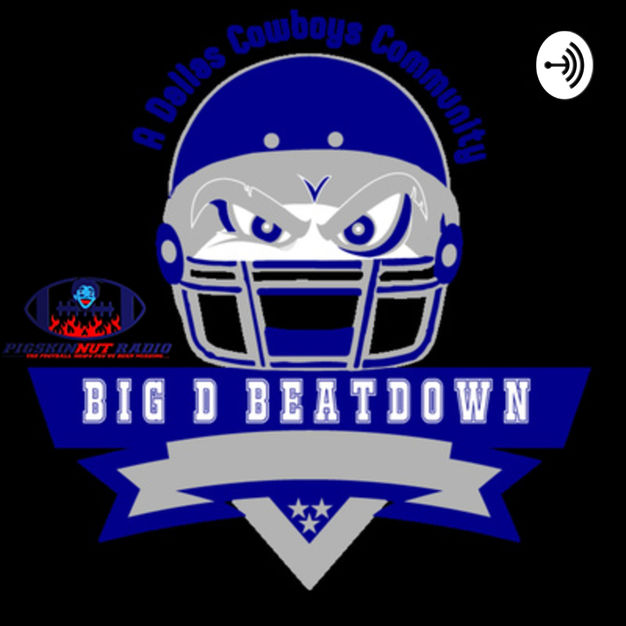 Big D Beatdown - An unbiased Dallas Cowboys podcast
Big D Beatdown - An unbiased Dallas Cowboys podcast
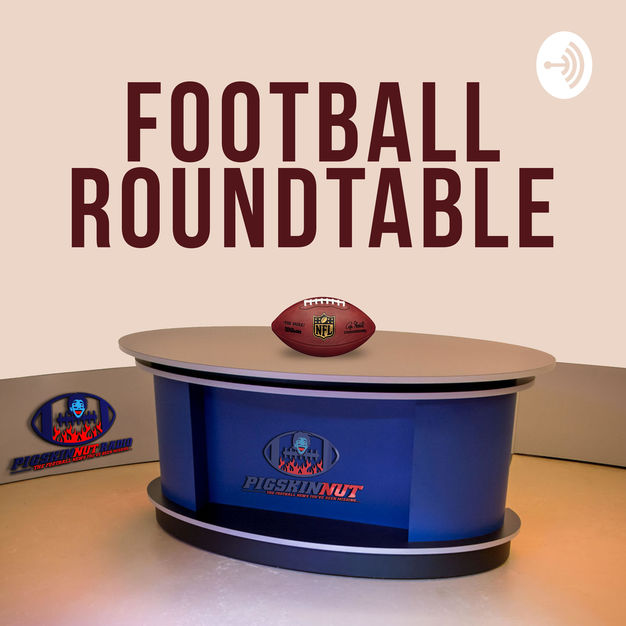 Pro Football Roundtable
Pro Football Roundtable
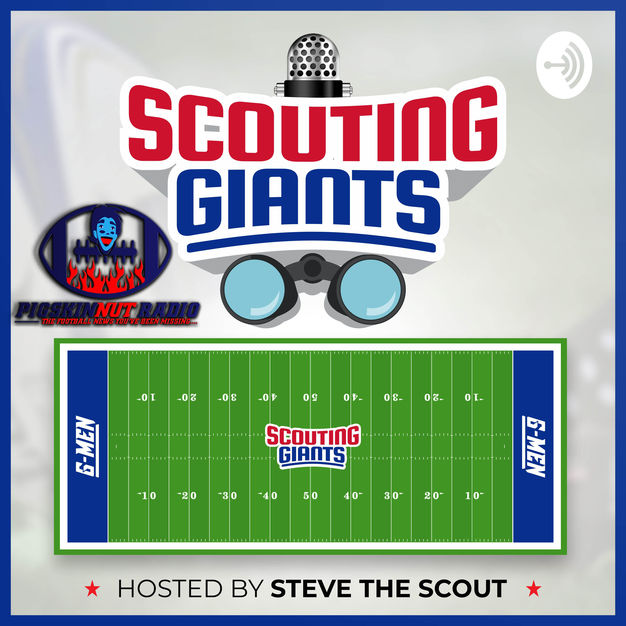 Scouting Giants - A New York Giants Podcast
Scouting Giants - A New York Giants Podcast
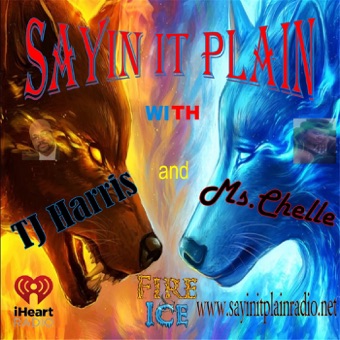 Sayin it Plain w/ TJ Harris & Ms.Chelle
Sayin it Plain w/ TJ Harris & Ms.Chelle